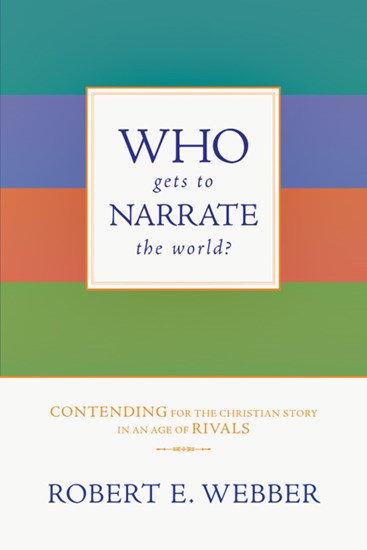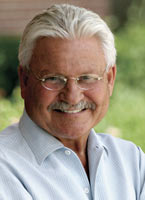
|
Who Gets to Narrate the World?
paperback
|
- Length: 137 pages
- Published: April 24, 2008
- Imprint: IVP
- Item Code: 3481
- ISBN: 9780830834815
-
Other Retailers:
Amazon*
*affiliate partner
Who gets to narrate the world?
The late Robert Webber believed this question to be the most pressing issue of our time. Christianity in America, he preached, will not survive if Christians are not rooted in and informed by the uniquely Christian story that is the gospel of Jesus Christ.
This is the burden of Webber's final book, Who Gets to Narrate the World?: Contending for the Christian Story in an Age of Rivals. Convinced that American evangelicals are facing the demise of their entire way of life and faith, Webber challenges his readers to rise up and engage both the external and internal challenges confronting them today. This means that Christians must repent of their cultural accommodation and reclaim the unique story--the Christian story--that God has given them both to proclaim and to live.
"Bob Webber offers a broad-stroke survey of the grand narratives that seduce and bind us, and utters a passionate call for the church to teach and embody the whole sweep of God's story in a postmodern world."
"Webber's warnings remain valuable for those of us in the West. We are not the only game in town."
"Robert Webber's final gift to the Christian community. I would certainly recommend this book to beginning theology readers interested in understanding the relationship of the Christian faith and culture formation."
"Webber's critique will resonate with many. He offers a clarion call for evangelicals to address their lack of theological depth and their excessive individualism. His plea to return to ancient traditions will appeal to those seeking rootedness in an ahistorical, evanglical world devoid of rich tradition."
"If you read this book carefully you will hear the Christian store in new ways and be better prepared to resist the idolatries of modernity and postmodernity that Webber condemns."
". . .an excellent survey of worldviews.
". . . A thought-provoking read, a call to vie for the biblical Christian narrative in your actions. Thank you Robert Webber."
"This was Bob Webber's last book; it puts together all of his thinking. I highly recommend this book, not only as a quick access to Webber's seminal ideas, but as a study worth using in small groups."
"Who Gets to Narrate the World? is Webber's last book, and is a superlative note on which to leave this life."
"The author encourages readers to not only become more familiar with the history of Christianity, but in so doing, to take a stand for the kingdom of God and regain spiritual ground Christians have unknowingly surrendered."
CONTENTS
Acknowledgments
Introduction: A Wake-Up Call
1. God's Narrative
2. God's Narrative Emerges in a Pagan Roman World
3. God's Narrative Influences the Foundations of Western Civilization
4. How the West Lost God's Narrative
5. Our Postmodern, Post Christian, Neopagan World
6. New Contenders Arise to Narrate the World
7. A Call to Narrate the World Christianly
Conclusion: A Challenge



